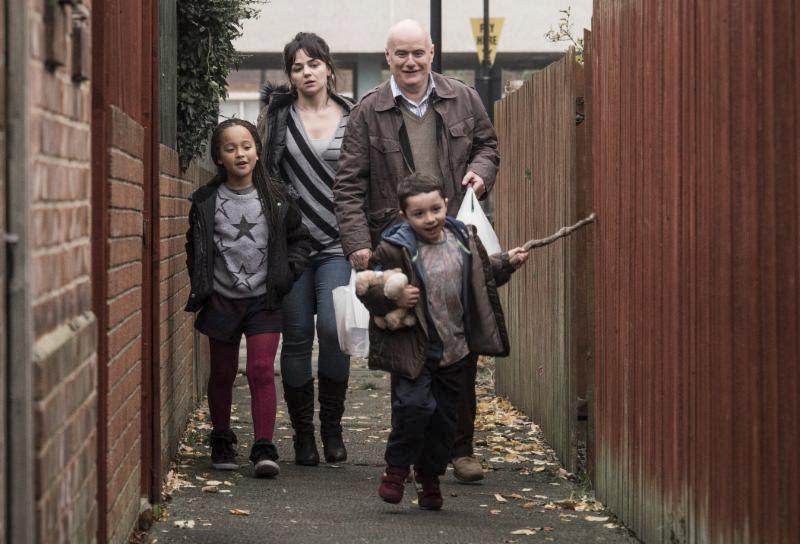A Film That Gives More Than We Asked
“I, Daniel Blake” won the 2016 Palme D’or at the Cannes Film Festival.
December 5, 2016
When I first saw “I, Daniel Blake,” it was late September. I found myself noting how the film seemed to have perfect timing in the wake of Brexit: a British working class man, the eponymous Daniel Blake (Dave Johns), is forced to go on state welfare after heart issues require him to take a break from his job as a carpenter. What should be a simple medical leave is made horribly frustrating due to the counterintuitive, gravely illogical laws of a coldly bureaucratic government.
Put simply, a blue-collar man is utterly forgotten by his country and its administration, and it was baffling to me not to see parallels to Britain’s populist anger. Then again, when I mentioned this thought to the man next to me, he responded with a look of befuddlement. To smooth things over, I confessed that racism was certainly an inextricable reason for the country’s decision to leave, and this film does not look to empathize with racist or ignorant Britons.
I thought back to that moment two days after the presidential election, when during a recitation my English TA confessed that he didn’t believe protests and angry demonstrations would be enough to heal a fractured and hateful nation. Rather, he believed we needed to try to speak to and relate with much of the country that had voted Republican.
In hopes of promoting this sentiment, my TA offered a poignant thought: he loved President Obama for his universal health care and emphasis on equality. Not once did he think of him as the president who allowed NSA overreach or a dramatic increase of senseless, brutal drone bombings. Why, then, couldn’t a Trump voter think of our president-elect as just the candidate who could restore working-class jobs, and not as the anti-Muslim, anti-Mexican, sexist candidate?
This point seemed to directly and effectively contrast my statement on Brexit’s racism, and only elevated the importance of “Blake” tenfold. While film and art won’t immediately instigate change, they certainly can be, and certainly have been, instruments that allow people to see, and hopefully understand, from which they are otherwise utterly removed.
“Blake,” directed by the often-socialist Ken Loach, has the potential to allow viewers to take a look into the discontented, disenfranchised lives of the working class, the supposed bloc that elevated Donald Trump to president-elect. This is not to say Donald Trump should be accepted or normalized — as his racism, xenophobia, Islamophobia, sexism, lying tendencies, ignorance and incompetence must always be acknowledged — but that empathizing with our political combatants may be necessary, and may be made easier by watching a movie.
The film so firmly places the viewer within Blake’s struggles that rarely does a scene go by without frustration mounting, whether there are new stipulations added to prevent his welfare checks from coming through or simply neighbors not taking out their trash. While these struggles may be unknown to many, at least with “I, Daniel Blake” they can be seen, felt and hopefully allow for empathy.
“I, Daniel Blake” will be released in theaters on Dec. 23.
A version of this article appeared in the Monday, Dec. 5 print edition. Email Ethan Sapienza at [email protected].
















































































































































